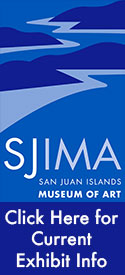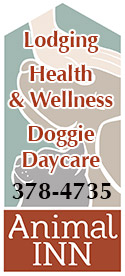Letter to the Editor: Human and wildlife health are interconnected
Posted October 7, 2022 at 10:54 am by Jeff Arnim

An outbreak of avian flu in upper Eastsound this summer raised an important public policy issue that should not be left by the wayside: to protect people from emerging pathogens, we need to monitor wildlife disease — and intervene, swiftly and appropriately, to wildlife epidemics.
People and non-human animals share many families of bacteria, viruses, and fungi. Mutations in these microbes can make them more infectious and deadlier to their usual hosts; and sometimes enable them to “jump” to other host species — and back again. Coronaviruses, for example, are widespread and genetically diverse in the world’s bats. Bats appear to be immune to most of them most of the time. But some strains of these viruses may not only sicken bats but could also infect people, as shown by a recent study published in the journal Nature. The origins of COVID-19 remain uncertain, but similar viruses have been found in some species of Asian bats.
The H1N1 swine flu pandemic in 2009 apparently originated in a mutation in infected pigs, and there is concern that the current spread of H5N1 avian flu across North America, although chiefly among wild and domestic waterfowl, may be capable of jumping to humans directly or through an intermediate mammalian host such as foxes. Some of the tick-borne pathogens that our laboratory recently detected in the San Juan Islands, such as Anaplasma, can infect humans, dogs, and other mammals, making it very difficult to locate and control.
Climate change may exacerbate the danger to humans. Hungry animals with weakened immune systems are perfect incubators for pathogens. When more animals sicken more often, the probability of pathogens thriving, diversifying, and then jumping to new hosts increases.
Islanders interact frequently with wildlife. We have deer and rabbits browsing in our backyards, raccoons — or foxes, on San Juan Island — in our compost piles and gardens, bats in eaves and attics, and geese in our ponds. Many of us have domestic flocks, cattle or sheep, and dogs or cats that interact with visiting wildlife. Wildlife are an important distinction of island life, whether they are aesthetic, a nuisance, or food. Because of this, our microbes and our health are deeply interconnected, and it is essential that we treat wildlife epidemics as seriously as human epidemics.
We note that three state departments — Fish and Wildlife, Agriculture, Health — and the County’s Department Health & Community Services have overlapping authority over wildlife diseases, but it is unclear whether they have the resources or road map for a coordinated response to disease outbreaks.
One step that state and local authorities should take is adopting a protocol for responding to an outbreak of wildlife disease, such as the deer adenovirus, rabbit hemorrhagic disease, and avian flu that we have seen in the past few years. There needs to be a clear allocation of responsibilities and adequate funding for sampling and testing, detention and disposal of dying and dead animals, and issuing informed public guidance. A collaborative team of first responders at the county level should be designated and include nonprofits that study and monitor wildlife, as well as human and wildlife health professionals.
Our laboratory volunteers to be a part of that team. But we urge the state and county to embrace a more active approach to wildlife health. It is insufficient simply to compile opportunistic data, typically from reports made by concerned citizens.
Russel Barsh
Director, Kwiáht
Lopez Island
You can support the San Juan Update by doing business with our loyal advertisers, and by making a one-time contribution or a recurring donation.
Categories: Around Here










No comments yet. Be the first!
By submitting a comment you grant the San Juan Update a perpetual license to reproduce your words and name/web site in attribution. Inappropriate, irrelevant and contentious comments may not be published at an admin's discretion. Your email is used for verification purposes only, it will never be shared.